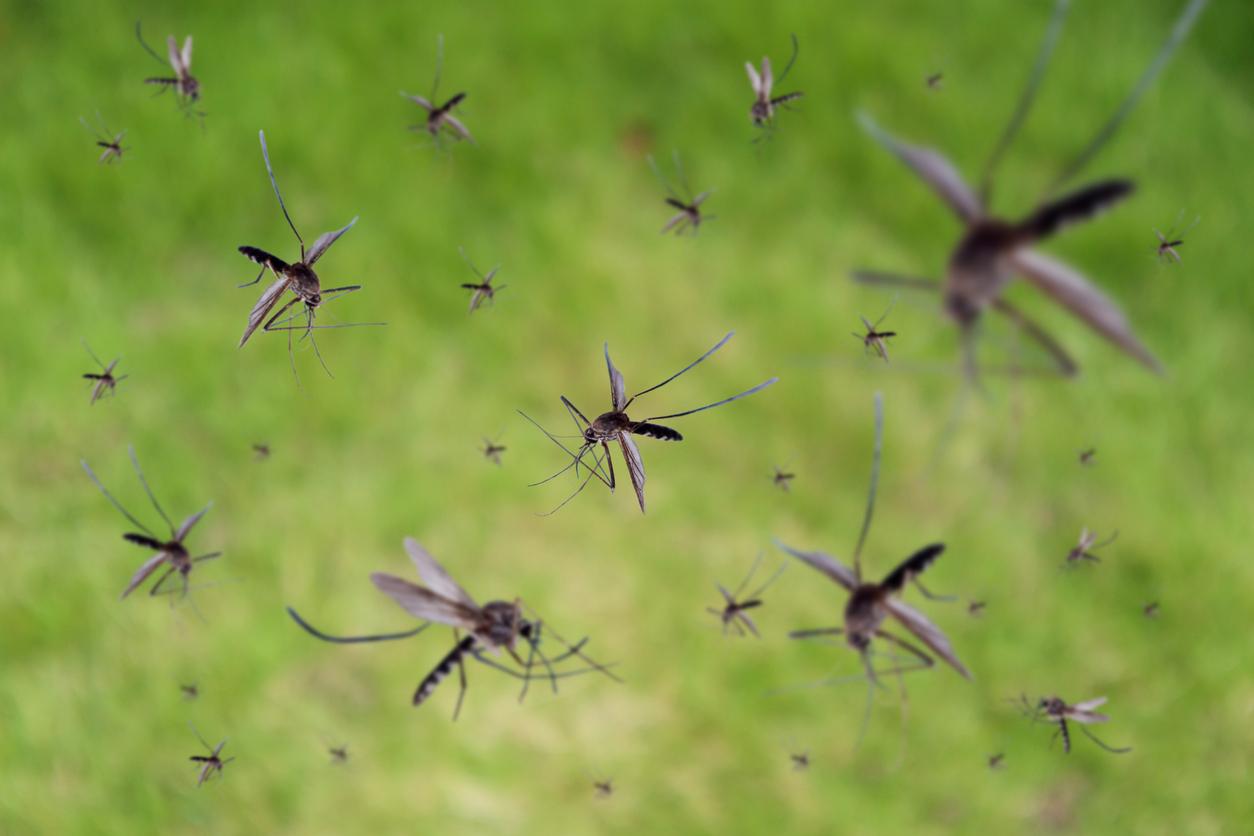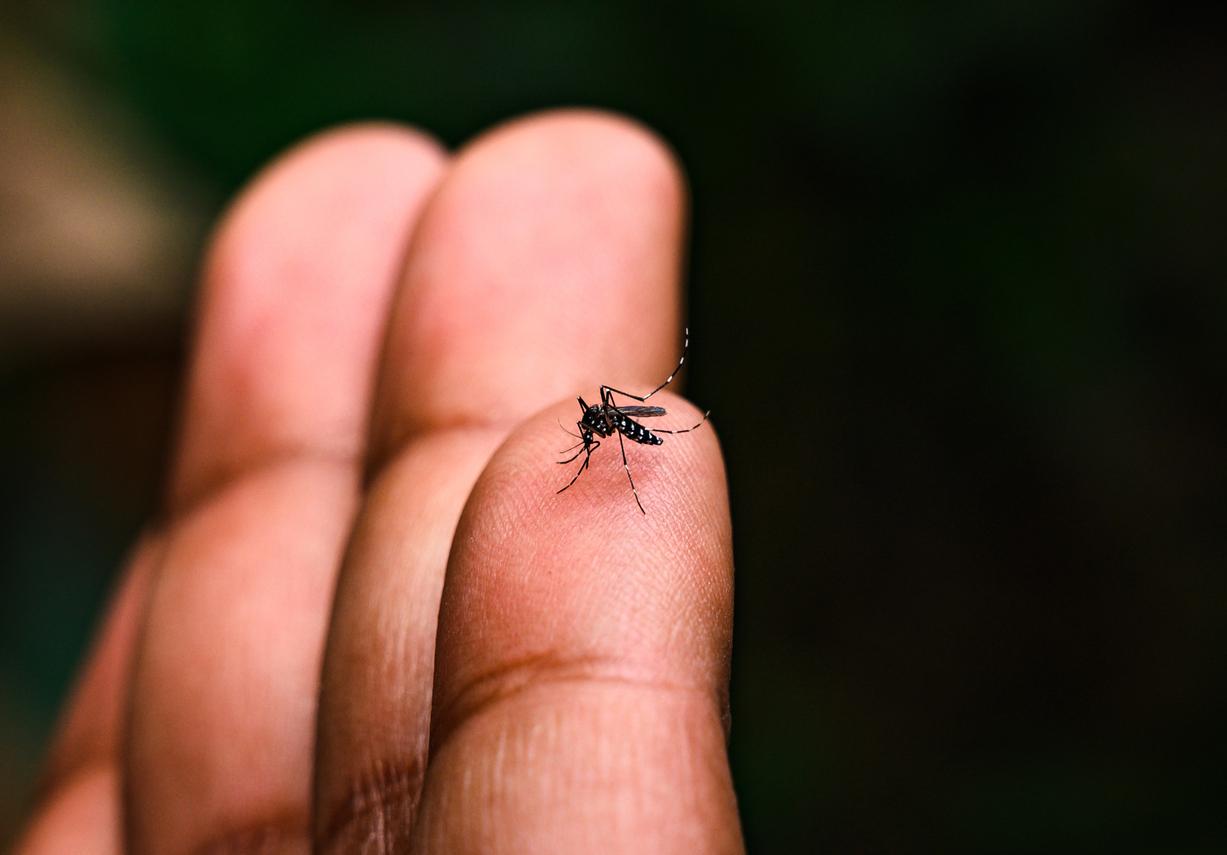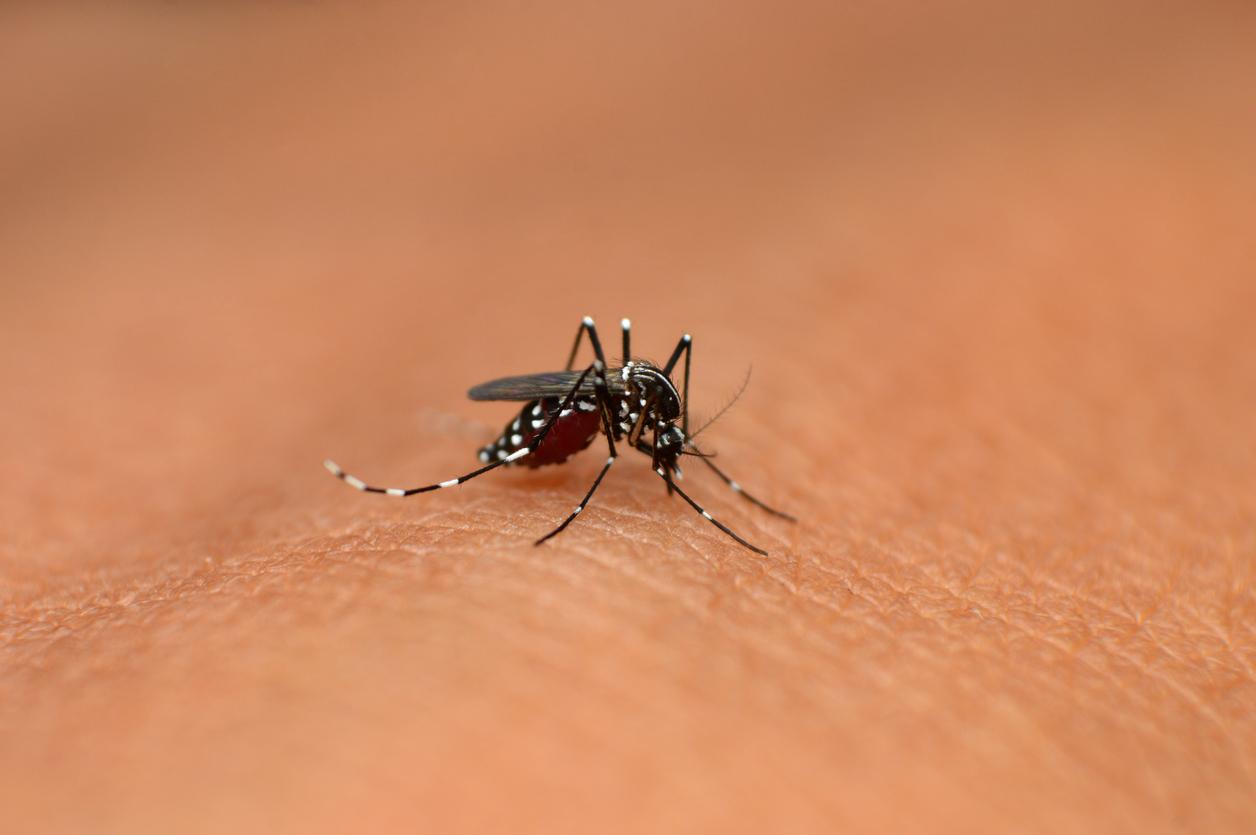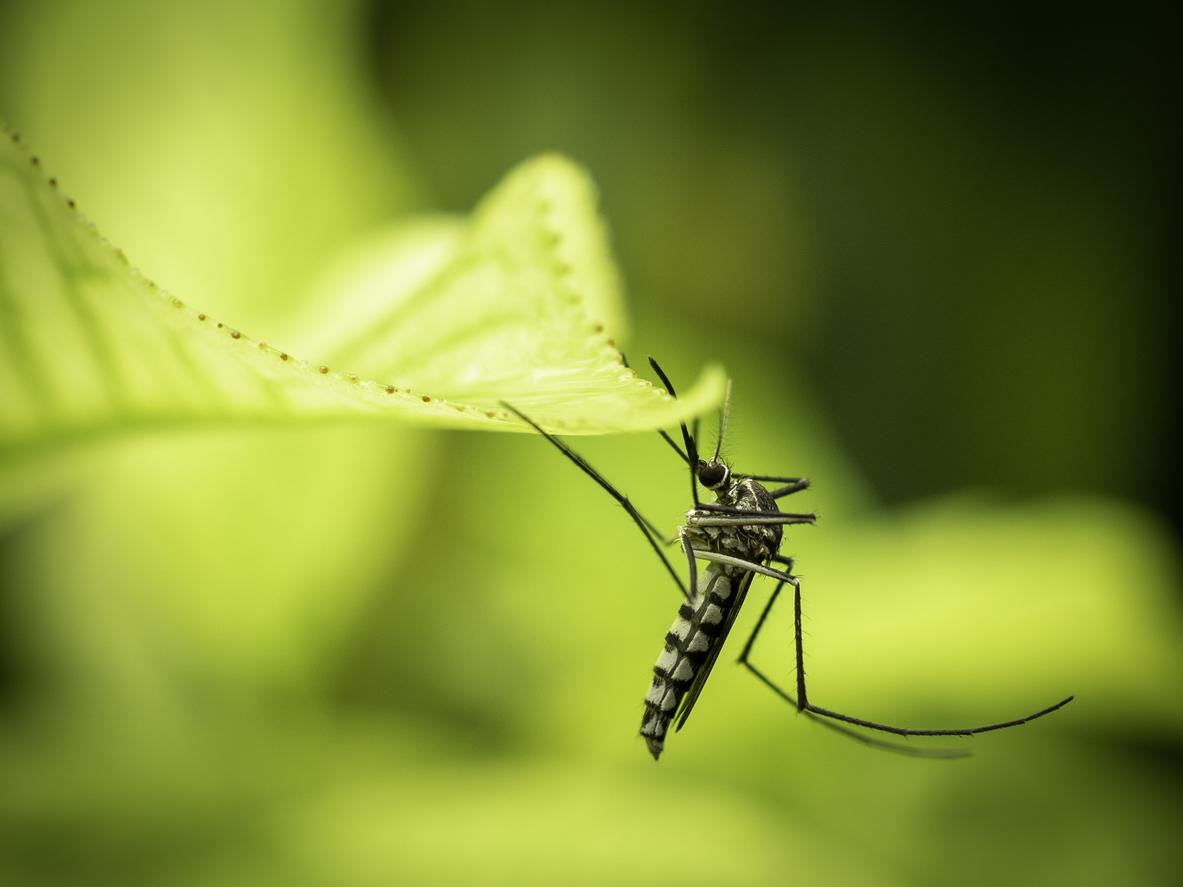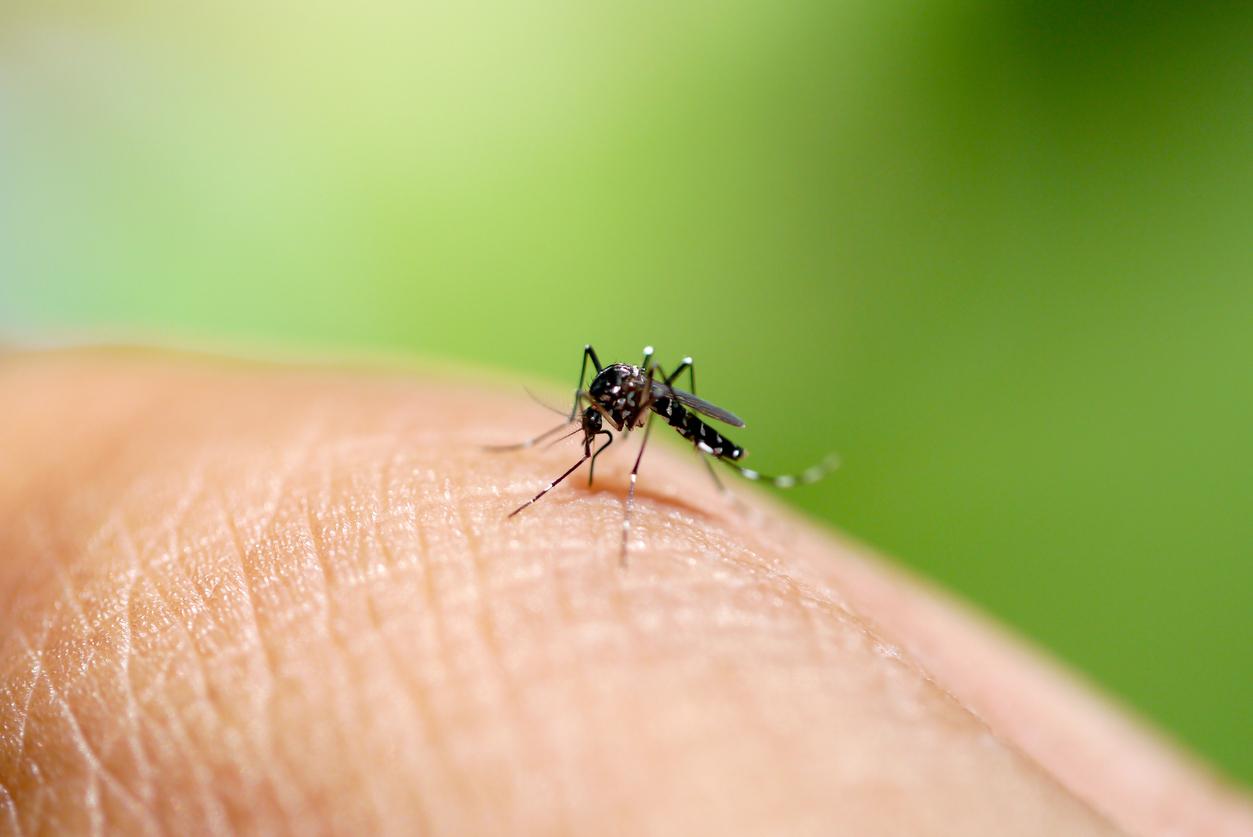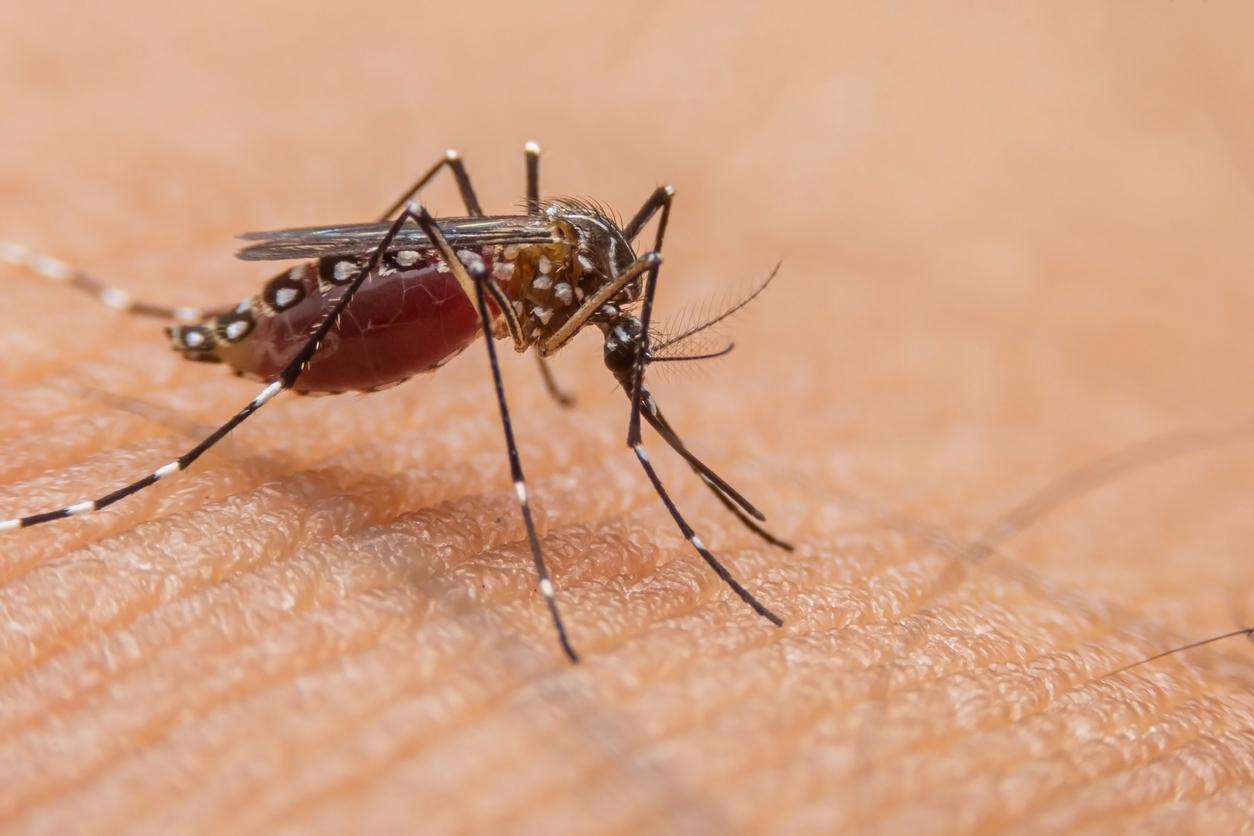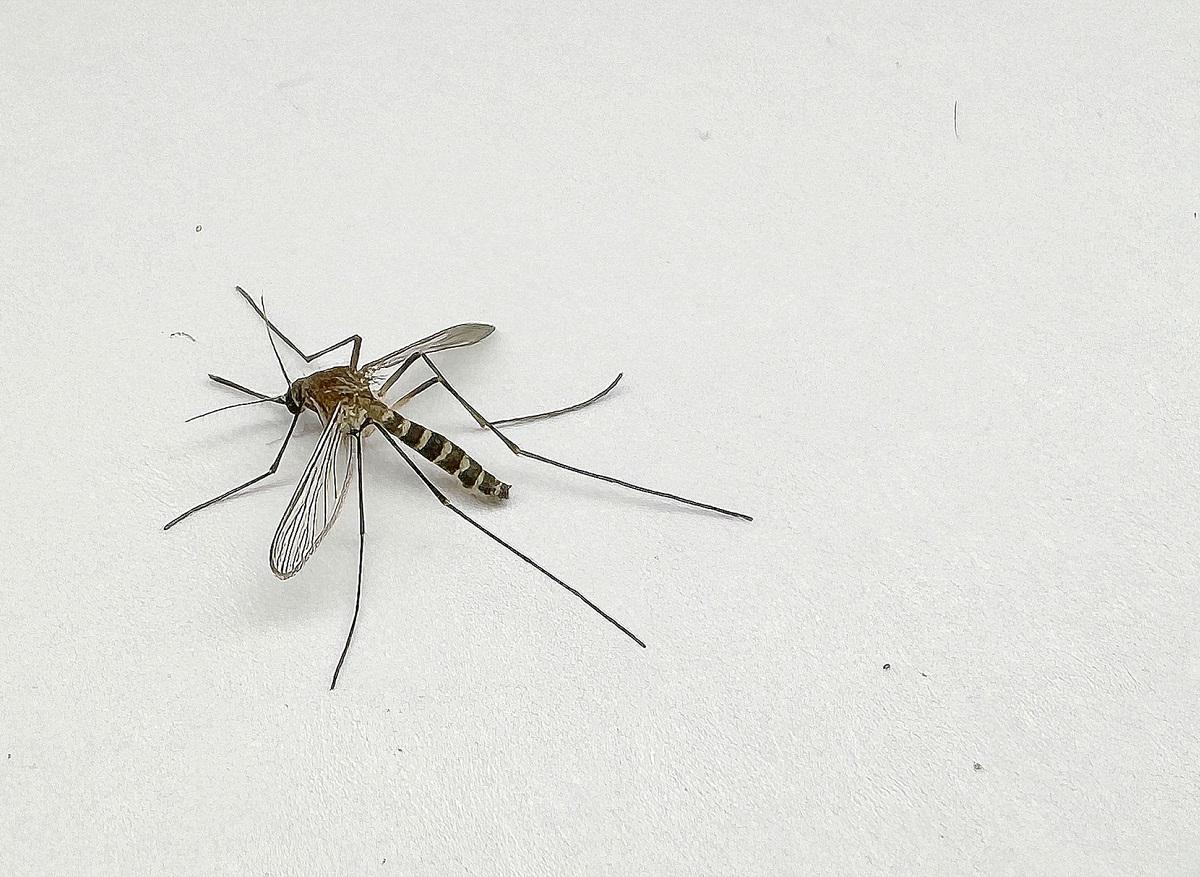Since May 1, 206 suspected cases of dengue or chikungunya have been reported to InVS. Among them, 33 imported cases of dengue in mainland France are confirmed. This figure has doubled in two weeks.
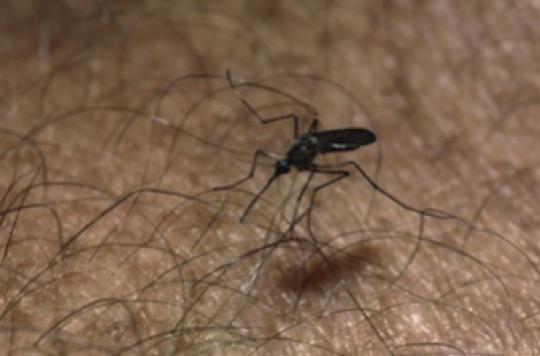
“The probability that a chikungunya epidemic will break out in mainland France this summer is much greater than in previous years. », Recently indicated Jean-Claude Desenclos, scientific director of the Institute for Public Health Surveillance (InVS). This announcement was explained in particular by the fact that the number of cases of infected patients imported from the West Indies to the metropolis has continued to increase since May.
Still no indigenous case
Thus, from 1er May to June 20, 206 suspected cases of dengue or chikungunya were reported to InVS in the 18 metropolitan departments where the mosquito Aedes albopictus is implanted. Among them, the regional health agencies have identified 33 imported cases of dengue which have been confirmed. And 72 imported cases of chikungunya also confirmed. There were no indigenous cases, also specifies the Institute. But the latter notes 2 imported cases co-infected with dengue and chikungunya.
As a reminder, barely two weeks ago, this same census reported only 15 imported confirmed cases of dengue. This figure therefore doubled in the space of two weeks.
And in more detail, it is the Provence-Alpes-Côte d’Azur region which remains the most affected in metropolitan France by these two tropical infectious diseases.
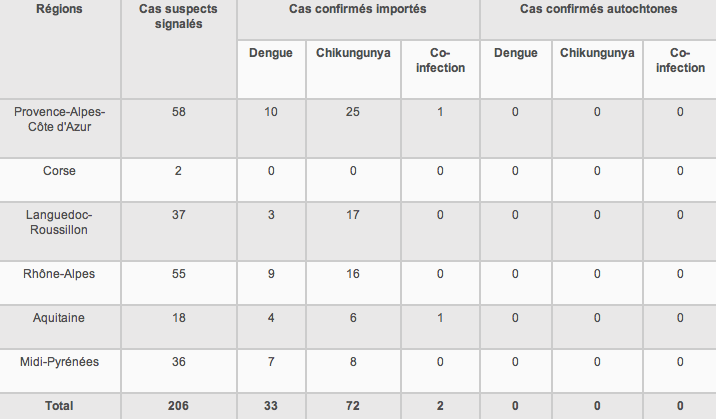
Number of suspected and confirmed cases of chikungunya and dengue, by enhanced surveillance region, from 1er May to June 20, 2014 (Source: InVS)
The French Antilles strongly affected
Finally, for the past six months, the French Antilles have also been experiencing a worrying situation. There, the virus affected 8% of the Martinican population (31,270 cases between December and May) and 7% of the inhabitants of Guadeloupe (28,320 cases) for this year alone.
As a reminder, chikungunya is characterized by high fevers, and significant joint pain, stiffness. If you experience these symptoms, there are two imperatives to respect: “take paracetamol (but no anti-inflammatory type aspirin) and immediately consult a doctor”, recently informed the regional daily. The Independent Dr Julian Cornaglia, from the infectious and tropical diseases department at Perpignan hospital.
.









